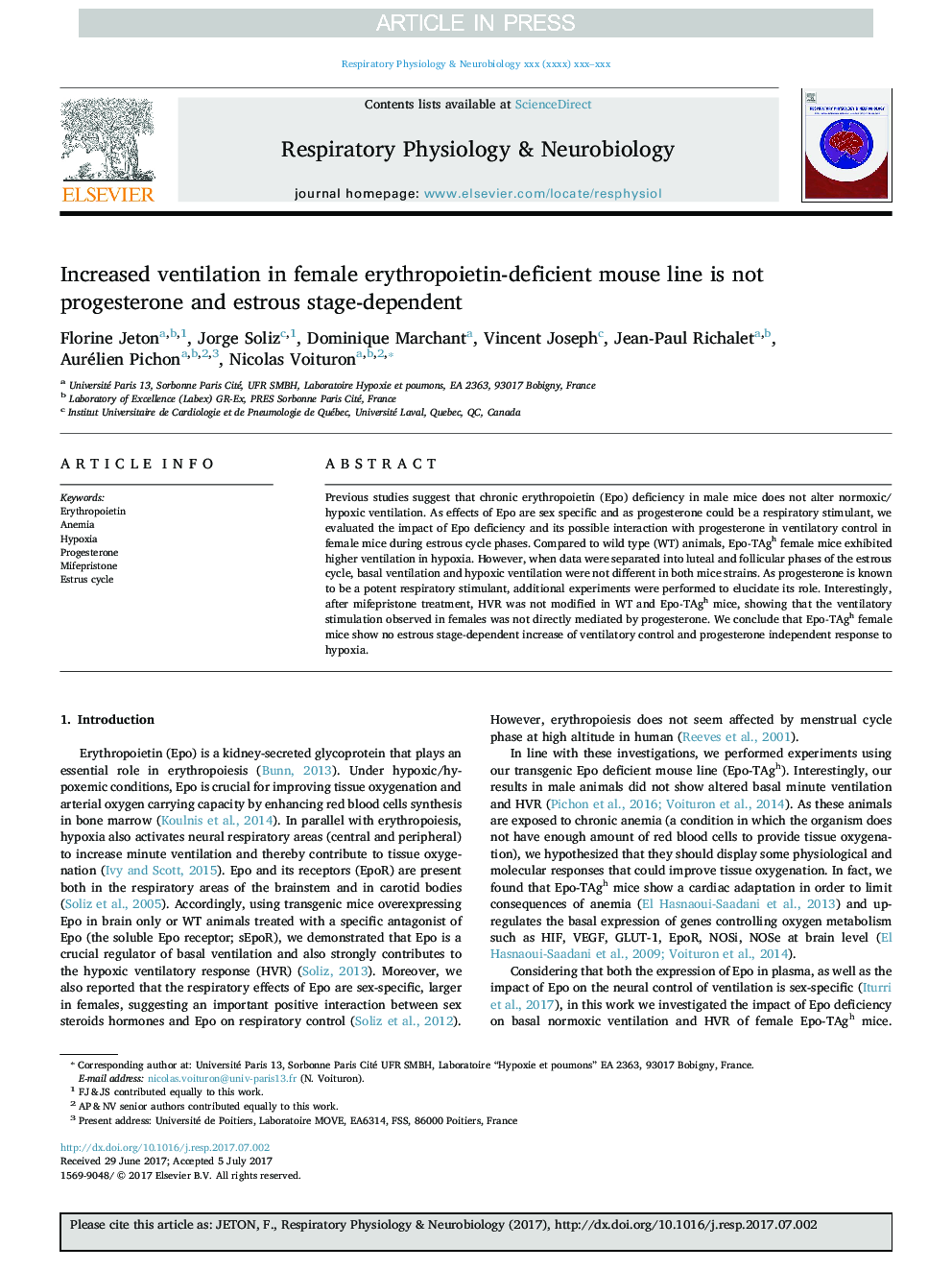| Article ID | Journal | Published Year | Pages | File Type |
|---|---|---|---|---|
| 5594102 | Respiratory Physiology & Neurobiology | 2017 | 7 Pages |
Abstract
Previous studies suggest that chronic erythropoietin (Epo) deficiency in male mice does not alter normoxic/hypoxic ventilation. As effects of Epo are sex specific and as progesterone could be a respiratory stimulant, we evaluated the impact of Epo deficiency and its possible interaction with progesterone in ventilatory control in female mice during estrous cycle phases. Compared to wild type (WT) animals, Epo-TAgh female mice exhibited higher ventilation in hypoxia. However, when data were separated into luteal and follicular phases of the estrous cycle, basal ventilation and hypoxic ventilation were not different in both mice strains. As progesterone is known to be a potent respiratory stimulant, additional experiments were performed to elucidate its role. Interestingly, after mifepristone treatment, HVR was not modified in WT and Epo-TAgh mice, showing that the ventilatory stimulation observed in females was not directly mediated by progesterone. We conclude that Epo-TAgh female mice show no estrous stage-dependent increase of ventilatory control and progesterone independent response to hypoxia.
Related Topics
Life Sciences
Biochemistry, Genetics and Molecular Biology
Physiology
Authors
Florine Jeton, Jorge Soliz, Dominique Marchant, Vincent Joseph, Jean-Paul Richalet, Aurélien Pichon, Nicolas Voituron,
